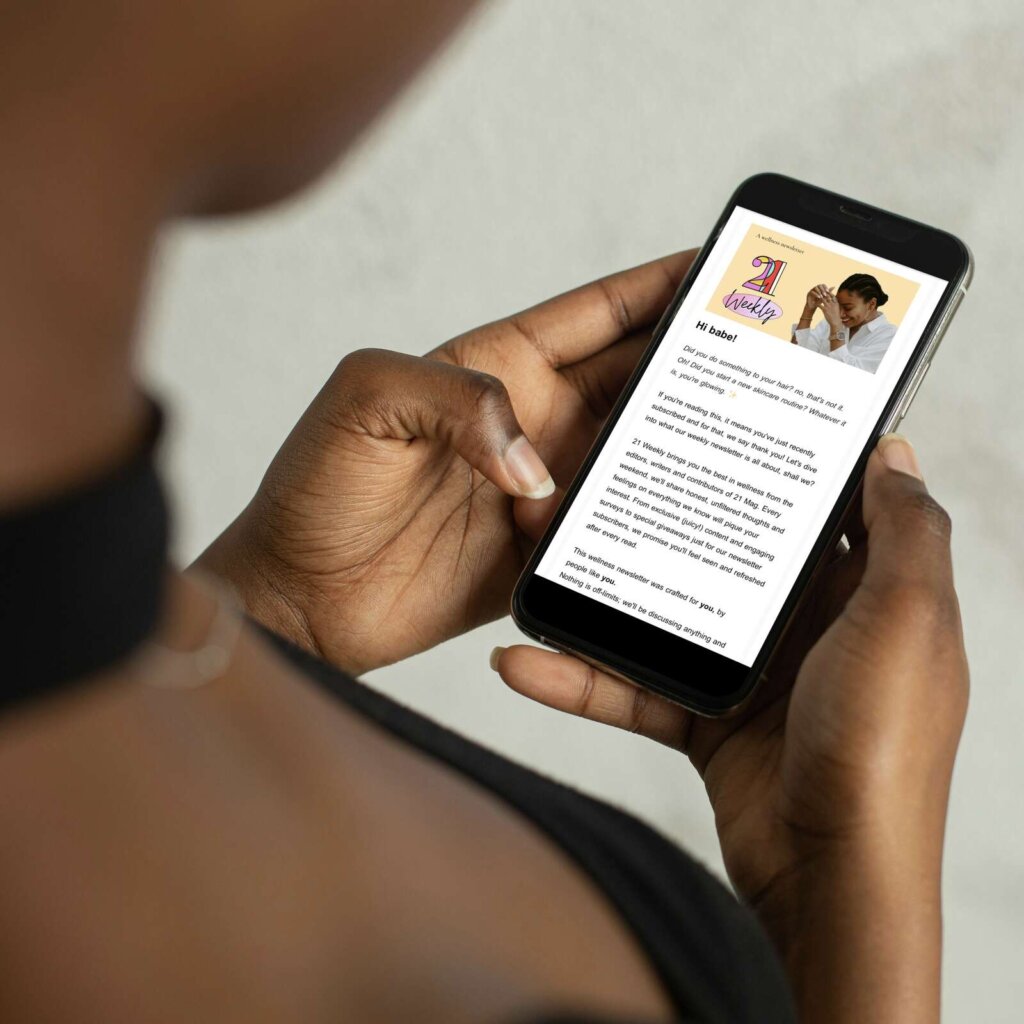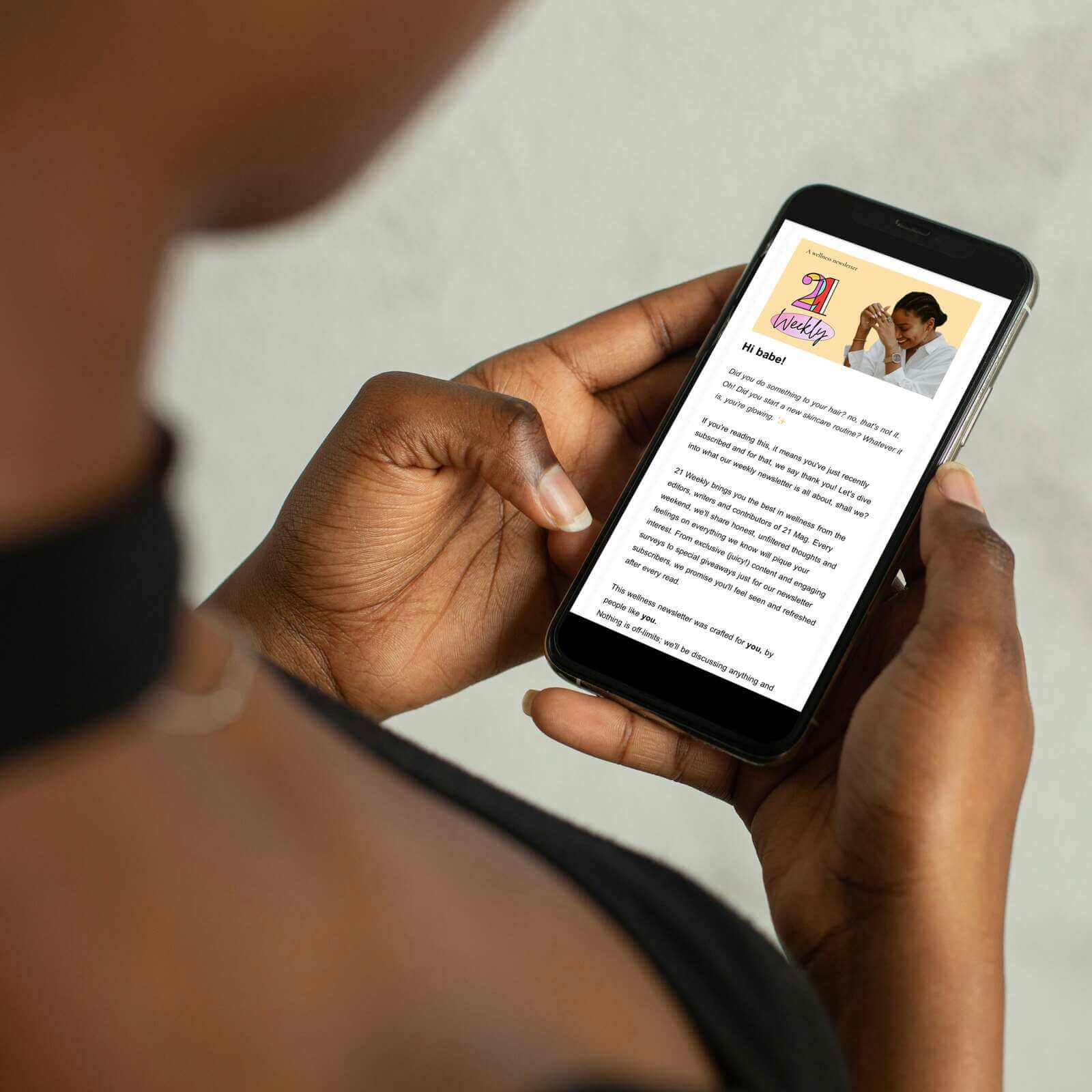No products in the cart.
6 Instances of Nigeria’s Continued Stance Against Women
The upcoming 2024 Democracy Day calls all of us to reflect on how women’s rights are constantly taking a blow in Nigeria, and even beyond. The frightening levels of gender inequality makes Nigeria and its dysfunctional government, ten times worse, not only for Nigerian women (who bear the brunt of this injustice) but for the progressive development of society as a whole.
Malala Yousafzai said it best: “I raise up my voice not so that I can shout, but so that those without a voice can be heard. We cannot all succeed when half of us are held back.”
This article covers a range of incidents, from the malicious prosecution of Chioma Okoli for a negative product review to the unresolved plight of the Chibok girls kidnapped by Boko Haram. The article also examines the controversial state-sponsored marriage of young orphaned girls, the inadequate legal response to the femicide of Augusta Osedion, the repeated legislative failures to pass equality bills, and the punitive measures against Bobrisky, a prominent transgender figure. These cases collectively illustrate the persistent and multifaceted nature of gender inequality in Nigeria.

The Malicious Prosecution of Chioma Okoli by Erisco Foods
In September 2023, the police arrested Mrs Chioma Okoli for claiming in a review posted on her Facebook page on 17th September 2023 that a tomato paste, Nagiko tomato mix (now in the market as ‘TomaGood Tomato Mix’), she bought in a market was ‘too sweet’. Things escalated when one commenter said: “Stop spoiling my brother’s product. If you don’t like it, use another one, then bring it to social media or call customer service.” Chioma responded: ‘Help me advise your brother to stop killing people with his product. Yesterday was my first time using it, and it’s pure sugar.’
Little did Chioma, a 39-year-old woman pregnant with her fourth child, know that voicing her opinion would spiral into a malicious prosecution that has not only threatened her with seven years imprisonment for an online review but has also grossly violated her human rights.

A few days later, police operatives in Lagos arrested Ms Okoli while she was attending a church service near her home, taken to a detention centre where she was locked up overnight, and then flown to Abuja for interrogation. All prompted by a complaint by Erisco Foods Limited, the manufacturer of Nagiko tomato mix—the beginning of a series of legal challenges for Chioma. Describing her experience at the detention centre, she told CNN, “There were no seats, so I stood all through till the next day,” she said. “My legs were inside the water that came in from the leaking roof”. More so, the police charged Chioma at the Federal High Court in Abuja. It is still unclear why Chioma is being made to travel to Abuja, given both she and Erisco are based in Lagos.
By October 5th, 2023, The Nigerian Police Force accused Chioma of “instigating people against Erisco Foods Limited, knowing the said information to be false”, invoking the Cybercrime Prohibition Act and consequently charging her to court on behalf of Erisco Foods. Nigeria’s Cybercrime Act, under which Mrs Okoli is being prosecuted, has been used by the police to kick against free speech, especially targeting freedom of the press employed by many journalists who are perceived to be critical of powerful people. Section 24 of the law, which is typically quoted by the police, states that it is a crime: “for a person to knowingly or intentionally send a message or other matter by means of computer systems or network that he knows to be false, for the purpose of causing annoyance, inconvenience danger, obstruction, insult, injury, criminal intimidation, enmity, hatred, ill will or needless anxiety to another”.
On the 9th of January 2024, policemen invaded Chioma’s private residence to re-arrest her. By January 19, 2024, Erisco Foods announced a separate civil lawsuit against Okoli, claiming her review had caused substantial financial losses and reputational damage, demanding billions in compensation.
The Nigerian Police, in collaboration with Eric Umeofia—the CEO of Erisco Products Limited, renowned for being a bully—has made Chioma’s life a living hell ever since she gave a review of Nagiko tomato mix (TomaGood Tomato Mix). She has been consistently dragged in and out of court, unlawfully arrested and detained, and suffered financial and mental hardship due to this ongoing legal battle. Unfortunately, Chioma Okoli’s suffering led to a miscarriage of her pregnancy (she was carrying twins) while she was in police detention.
On May 28, 2024, Chioma was arraigned in court and pleaded not guilty. She was remanded in a Medium Security Custodial Centre pending her bail hearing. By June 1st, 2024, she was granted bail on strict conditions—bond set at 5 million naira, two sureties in like sum, one of whom should be her spouse or blood relatives, two passport photographs from sureties, and a deposit of Chioma’s international passport with the Court.
While the Nigerian police force and judiciary abuse the rule of law and due process, Nigerians, especially women, are concerned with Chioma Okoli’s well-being and road to justice, with over 300 women organizations in Nigeria, united under the aegis of Womanifesto, calling for the immediate boycott of Erisco Foods products.
The Chibok Girls
On the night of 14–15 April 2014, 276 predominantly Christian female students aged 16 to 18 were kidnapped by the Islamic terrorist group Boko Haram from the Government Girls Secondary School in the town of Chibok in Borno State, Nigeria. Many of these girls were forced to convert to Islam as well as forced into marriage with members of the Boko Haram, with some getting pregnant and giving birth to a child or two in Sambisa Forest.
About 10 years later, while more than 180 have either since escaped or been freed, 96 of these girls (now women) still with their captors are no longer a priority for the Nigerian government. The #bringbackourgirls seems to be a relic from the past.
In a disheartening interview conducted by the BBC in 2024, it was revealed that the girls who were previously held captive but have now escaped or been freed are suffering under state care—with one girl saying that her freedom of movement is being heavily restricted and that the staff at her rehabilitation group home verbally abuse her.
For some former captives, who were promised a better life by Nigerians in top offices, life today is not what they anticipated from the promises made. One of the girls lives in a small room only five hours from Chibok—still rife with insecurity—with a daughter she had while held as a captive. Despite the government’s promises, she receives a paltry sum of 20,000 naira a month to cover everyday expenses but nothing for her daughter’s education. She pays that bill herself with the little money she makes from farming.
Many of these girls opine that they prefer their life at Sambisa Forest with the Boko Haram Terrorists to their new ‘free’ life at the mercy of the government.
The State-Sponsored Marriage Of 100 Girls In Niger State
On Friday, May 10, 2024, the Niger State Speaker of the House of Assembly, Abdulmalik Sarkin Daji, announced that he planned to marry off 100 female orphans whose parents were killed following the deadly activities of banditry in the constituency he represents, the Mariga Local Government Area of the state.
This announcement sparked outrage amongst many Nigerians and human rights activists, with the bone of contention being whether these girls had attained the age of consent in Nigeria—18 years—as well as the presence of undue influence in their choice to get married, seeing that their trauma—the brutal loss of both their parents—was still fresh. The marriage was scheduled for May 24th, 2024.
The Minister of Women Affairs, Barrister Uju Kennedy-Ohanenye, instituted legal action to stop the proposed marriage of the 100 orphaned girls in Niger State in criticism of the sponsored marriages, citing violations of the Child Rights Act and expressing serious concerns about the ages and consent of the girls involved. Her proactive moves led to the postponement of Law Maker Sarkin Daji’s plans and granted relief to many Nigerians who believed that the minister would be able to stop the marriage plans altogether.
However, Minister Uju went back on that decision after reaching an agreement with the Speaker of the Niger State Assembly, Sarkin Daji, for the young women to have individual ceremonies instead of the initial planned mass wedding. In a statement, she said: “I did not intend to stop the marriage but to ensure the girls are of marriageable age and were not being forced into it” and then promised to award all the brides scholarships and a monthly stipend for the first six months of their marriages.
In essence, for reasons unknown to the general public, she went back on her promise to prioritise education and skill acquisition for these young girls when she instituted an action in the middle of May 2024 against the Niger State government. The girls who got married in late May 2024 were reportedly identified as ‘ripe for marriage’ by the Minister.
By going back on her fight against these marriages, Women Affairs Minister Uju has failed these young girls. While many advocates of Sarkin Daji’s plan—including some of the girls who eventually got married— contend that the marriage is consensual, in 2024, there is no more damning evidence that reveals the inferior value attributed to women by Nigerian society. Young girls have little or no ambition because our society hasn’t presented them with the guidance, safety, education, and space to visualise a life that surpasses the limitations of marriage.
The Murder of Augusta Osedion By Benjamin Best

In July 2023, 21-year-old Augusta Osedion, an undergraduate of Lead University, Ibadan, Oyo State, was reportedly killed by her partner of three years, Benjamin Best, known as KillaBoi, at his residence in Oral Estate, Ajah, Lagos State, on July 13th, 2023.
Best confessed to the murder on his Instagram page, writing that he “mistakenly stabbed” Osedion during an argument. Best’s narrative on mistakenly stabbing Austa was refuted by the spokesperson of Lagos State Police Command, Benjamin Hundeyin, who described what he saw during his visit to the crime scene: “the lifeless body of Augusta and the female genital chopped off, in a pool of her own blood. The corpse was recovered despite its fast-decomposing state. Marks of violence and signs of struggle were detected on the body…”
Notably, despite Killaboi’s confession, there was no immediate official statement made by the Nigerian Police on what it was doing to ensure he faced the music, until ‘the Justice for Austa’ hashtag began to trend on the internet.
After murdering Augusta, Benjamin Best fled to another country, while still being active on several social media platforms. Allegedly, he spent over $25,000 to acquire a Sierra Leonean passport and changed his name to Kanu Princeton Samuel.
About 3 months later, on October 20, 2023, he was arrested at a nightclub in Freetown, Sierra Leone. It should be noted that it was Austa’s family members, not the Nigerian Police Force, that played the larger role in nabbing Benjamin Best. Cordelia Okonye, the mother of Austa said she sent his passport photograph to all her relatives and friends. Along the line, one of her cousins in Sierra Leone said that she saw somebody exactly like KillaBoi. After which, her son (Austa’s brother) and another cousin traveled to Sierra Leone where they informed the Police.
After KillaBoi’s arrest in Sierra Leone, the Nigerian Police Force said that plans were underway to extradite him to face legal action. This development pacified thousands of Nigerian women who were vocal about capturing Austa’s killer. Still, we are sure it was nothing compared to the relief it brought to Austa’s family, especially her mother, who reportedly said, “1% of my pain is gone”, when Benjamin Best was found.
However, after the news of KillaBoi’s impending extradition to Nigeria for arraignment, there has been *radio silence* from the Nigerian Police Force. Till today, no one knows if at all he was even deported back to Nigeria. What is certain is that he has not come before any Nigerian court of law. His whereabouts are unknown. Benjamin Best is still a free man. Certain rumours are spreading around that he still has an active X account under an anonymous name.
The way Augusta’s case was treated by Nigeria’s Police Force is a prime example of how police authority handles femicide cases—with disdain and insouciance. Starting from their delay in making an official statement on this cold-blooded murder case to their lack of skillfulness in locating Killaboi—so much that private citizens did a bulk of the work—they still managed to ‘lose’ him while he was captured. The saddest thing is, till today, the Nigerian Police Force does not even care to answer the question that has plagued us all: Where is Benjamin Best (KillaBoi)?
The Continuous Rejection of Equality Bills
Many bills have been proposed to foster more opportunities for women in governance and the society at large. They were set to correct long-standing inequalities between men and women in the country.
One of the bills named ‘Expansion of the Scope of Citizenship by Registration’ seeks to alter the provisions of the Constitution to provide for citizenship by registration for foreign spouses of Nigerian women. In the current situation, only Nigerian men’s foreign spouses can automatically gain Nigerian citizenship.
Another bill named “Special Seats for Women” seeks to provide special seats for women in the National and State Houses of Assembly. That provision would help women get a better representation in governance bodies. The current National Assembly is 96.5% male.
A third bill named ‘Affirmative Action for Women in Political Party Administration’ seeks to alter the provisions of the Constitution to ensure that at least thirty-five percent of the executive committee members of a political party at all levels are women. This would change in the long-term the representation of women in governance bodies and help move towards parity.
One other bill aims to confer the right for women to obtain indigeneship of their husband’s state after at least five years of marriage.
However, none of these bills entered the second reading at the legislative house.
In 2023, a bill seeking equal rights for women, men, and persons living with disabilities passed the second reading in the Senate. The bill, titled, ‘Gender and Equal Opportunity Bill’, amongst other things, seeks to guarantee the rights of women to equal opportunities in employment; equal rights to inheritance for both male and female children; equal rights for women in marriage and divorce, and equal access to education, property/land ownership and inheritance. It also seeks to protect the rights of widows; guarantee appropriate measures against gender discrimination in political and public life and ensure the prohibition of violence towards women.
However, it has been frustrated by many lawmakers—since 2016 when it was initially brought up— who contend that the bill goes against Islam and some socio-cultural norms. One lawmaker representing Taraba Central, Yusuf Yusuf, said that the title of the bill should reflect “equity” and not “equality”.
The Malicious Prosecution Of Bobrisky For Spraying Money
On April 12th, 2024, Idris Okuneye, popularly known as Bobrisky, an openly trans-Nigerian woman living in Nigeria, was sentenced to six months imprisonment, without the option of fine, for mutilating the Naira notes, contrary to Section 21(1) of the Central Bank Act, 2007.
The mutilation of the Naira in question was Bobrisky, engaging in Nigeria’s commonplace party culture of money spraying. Bobrisky, who pleaded guilty right from arraignment as a first-time offender and made a plea of leniency, was given the maximum sentence. Our opinion is that her conviction was a smoke screen to punish her ‘gayness’.
And guess what? We were right. Justice Abimbola Awogboro, while sentencing Bobrisky, said the judgment would be a deterrent to others who are found abusing and mutilating the naira. Yet, when Obi Cubana, a popular businessman and socialite, was arraigned on similar charges a little while after Bobrisky’s conviction—mostly because the general public pointed out the unfairness of sentencing her, while Obi Cubana who has been captured on camera, many times, grossly and excessively spraying money, remained at large— was given a plea bargain.
We wait patiently to see how this case unfolds, and while we want to believe that no person is above the rule of law, this is Nigeria.















